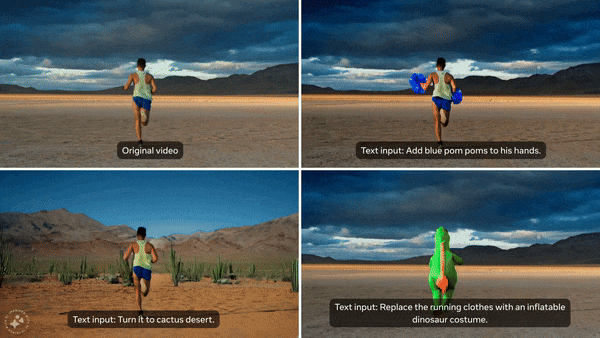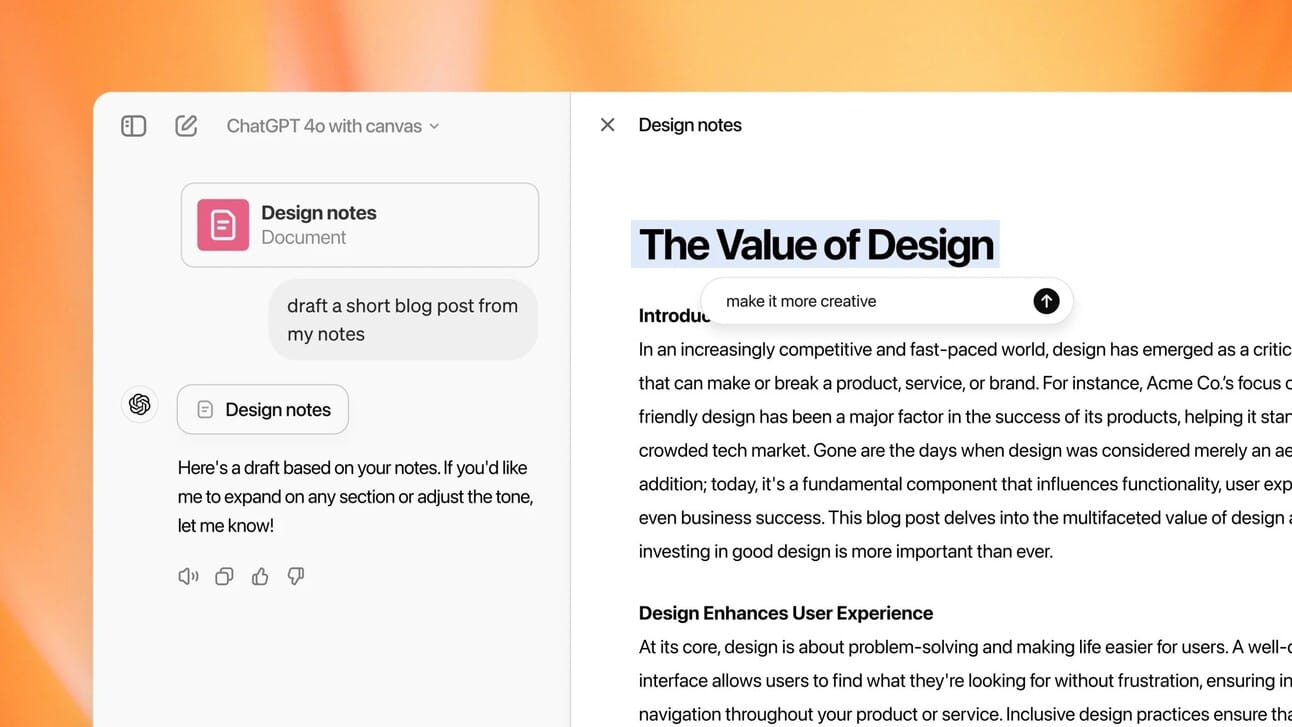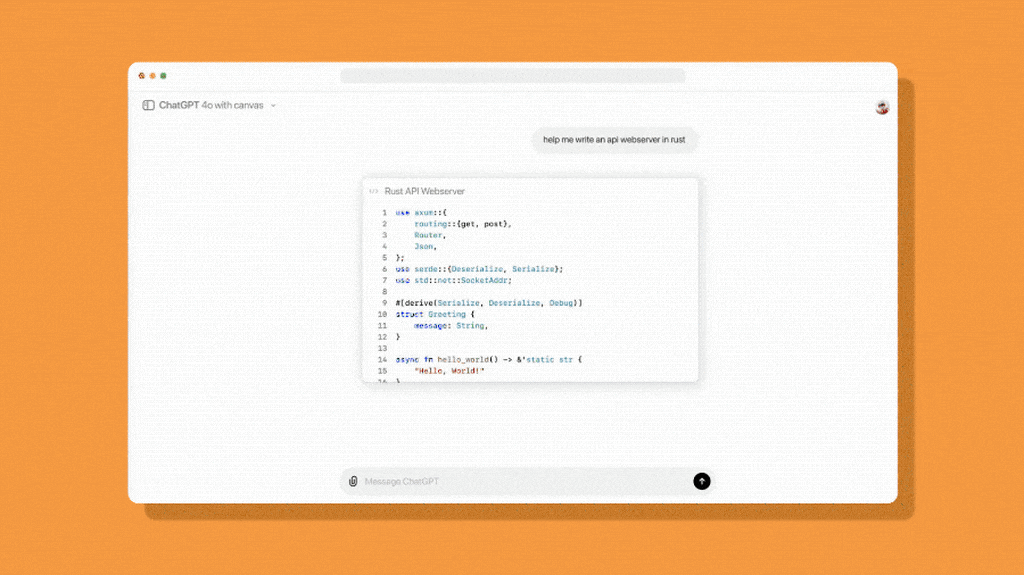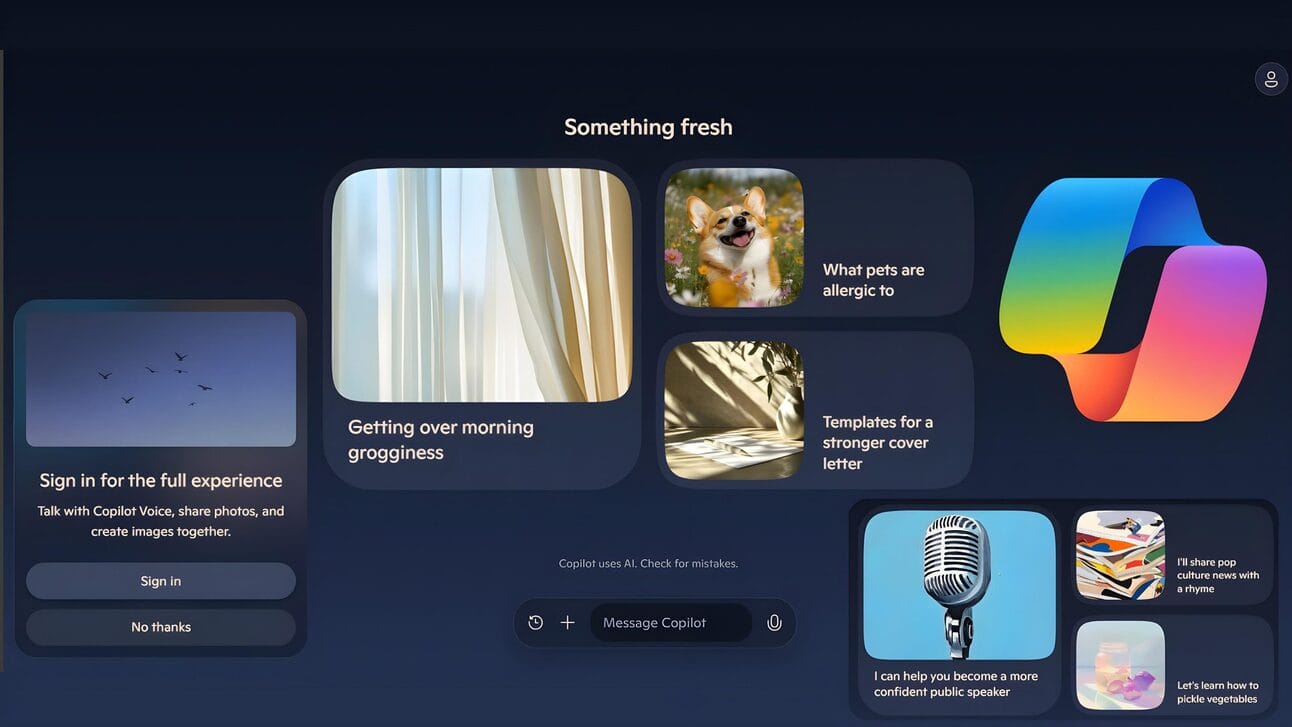- AI Weekly Insights
- Posts
- AI Weekly Insights #49
AI Weekly Insights #49
Meta’s Movie Magic, ChatGPT’s Canvas, and Conversational Copilots
Happy Sunday,
"AI Weekly Insights” #49 is here with a lineup that'll keep you on the edge of your seat! From Meta’s bold entry into AI-powered video production to Microsoft’s redesigned Copilot and a surprising veto in California, there’s a lot to unpack this week.
Ready? Let’s dive in!
The Insights
For the Week of 09/29/24 - 10/05/24 (P.S. Click the story’s title for more information 😊):
What’s New: Meta has announced "Movie Gen," an AI model designed to create realistic, high-definition videos with synchronized audio. This positions Meta as a significant competitor in the AI video generation sector.
A New Player in AI Video: Movie Gen is not limited to generating short, casual clips; it is aimed at producing professional-grade content. The model is capable of editing videos, generating personalized content from photos, and seamlessly adding soundtracks or effects. These features highlight Meta's ambitious entry into the high-end video production market, directly competing with other models like Runway’s Gen-3 and OpenAI’s unreleased Sora. Although public access is not yet available, the demonstrations have already made a strong impression.
Why It Matters: Meta's announcement of Movie Gen is a big move in the AI-powered video creation space, and honestly, it feels like a clear statement of intent. Unlike OpenAI's Sora, which has been teased for months without any real progress, Meta seems to be taking a different approach. Sure, Movie Gen isn’t available yet either, but the demos they’ve shown give the impression that this model could actually deliver soon. By focusing on professional-grade features like advanced editing and personalized content, Meta is aiming to prove they want to set the standard. Even without public access right now, Movie Gen is an exciting development that shows Meta is serious about pushing the boundaries of what AI can do in creative media production. It's going to be interesting to see if they can back up the hype and really deliver a tool that changes the game.

Image Credits: Meta

Image Credits: Meta

Image Credits: Meta
What's New: OpenAI has introduced "Canvas," a new feature for ChatGPT that lets users collaborate on writing and coding projects in a shared, editable space. Currently in beta, Canvas is available to ChatGPT Plus and Team users.
Canvas: Unlike the traditional chat interface, Canvas opens a separate window where users can directly edit text or code while receiving targeted feedback. This is a major improvement for tasks like revising long-form content or debugging code, which often involve multiple iterations. Users can highlight specific sections, request edits, and adjust tone or complexity in writing projects. For coding, Canvas supports debugging, adding comments, and translating code into different languages, all in real time. It’s a step beyond the conversational model, offering more focused, detailed collaboration.
Why it Matters: Canvas represents an important evolution in AI collaboration, turning ChatGPT into a true creative and technical partner in real time. For developers and writers, this means faster edits, smoother workflows, and more impactful results. This is particularly significant as it marks one of the biggest updates to ChatGPT's interface since its initial release. Having used it myself, it feels a bit like Anthropic's Artifacts feature, but more interactive and collaborative. It’s exciting to see how this feature integrates into OpenAI’s broader vision, especially with their recent $6.6 billion funding aimed at building even more advanced AI models. And if you’re curious about OpenAI's latest developer-focused updates, including the Realtime API and vision fine-tuning, make sure to check out the announcements from DevDay 2024. Canvas is just one piece of a much larger picture of where AI is headed.

Image Credits: OpenAI

Image Credits: OpenAI
What's New: Microsoft has revamped its Copilot AI, making it feel more human and conversational. The goal is to transform it from a simple tool into a true digital companion.
New Feel for Copilot: The redesigned Copilot features a new interface along with new capabilities: Copilot Voice for natural, flowing conversations, Copilot Daily for personalized news and weather briefings, Copilot Vision for real-time browsing suggestions, and Think Deeper for comprehensive answers to complex queries. These features aim to transform Copilot into a more integrated and dynamic user experience.
Why it Matters: This redesign reflects the broader trend in AI development: moving toward agents that feel more human-like. While fully realized AI agents are still in the future, Microsoft’s changes are a step in that direction. By focusing on more human-like interactions, Microsoft aims to create a deeper connection with users, setting the stage for AI that can assist in meaningful ways. As AI continues to advance, these developments push us closer to intelligent agents capable of handling more complex tasks and providing valuable, personalized support.

Image Credits: Microsoft
What's New: California’s Governor, Gavin Newsom, has vetoed SB-1047, a bill aimed at regulating large AI models. Newsom argued the bill was too broad and could stifle innovation.
SB-1047: The bill focused on large-scale AI models, mandating cybersecurity measures, whistleblower protections, and emergency shutdown protocols. However, Governor Newsom argued that the bill applied overly strict standards, potentially giving the public a false sense of security. He pointed out that smaller, more specialized models might pose equal or greater risks, and these are not addressed in the bill. The governor emphasized that future AI regulations should be more targeted, focusing on specific risks rather than blanket restrictions.
Why it Matters: This veto highlights the ongoing tension between fast tech advancements and slower regulatory frameworks. The divide is becoming more apparent in AI, as seen with delays like Meta’s Llama 3.2 in the EU due to compliance challenges. This illustrates that while regulations aim to protect the public, they can also create friction with tech companies striving for rapid innovation. In a field with so much potential and so little regulation, it will be fascinating to see whether future AI legislation will emerge more decisively at the state or federal level.

Image Credits: Cath Virginia / The Verge / Getty Images
Your enthusiasm and curiosity drive our exploration through AI's rapidly evolving landscape. I always look forward to your insights, questions, and help in spreading these discoveries within the AI community.
Until next Sunday, keep exploring and stay engaged!
Warm regards,
- Kharee